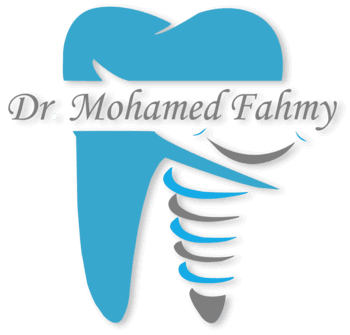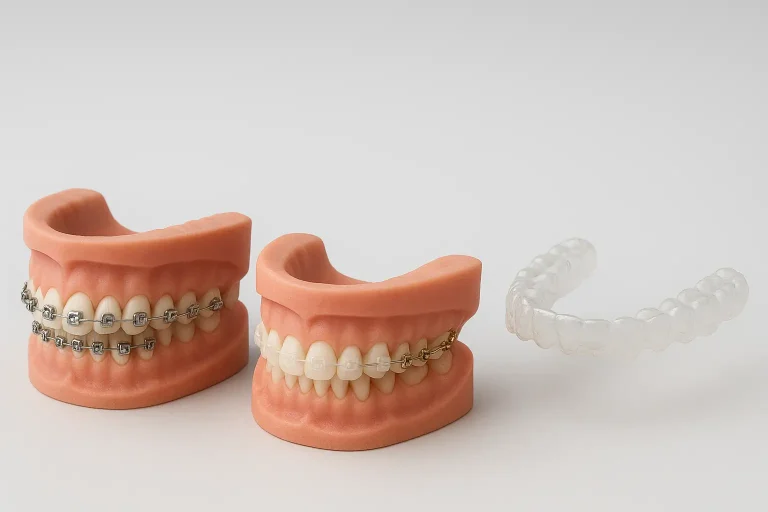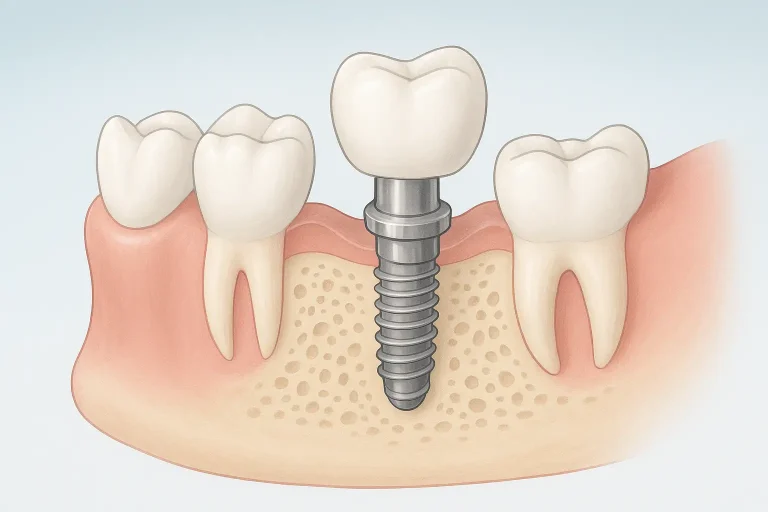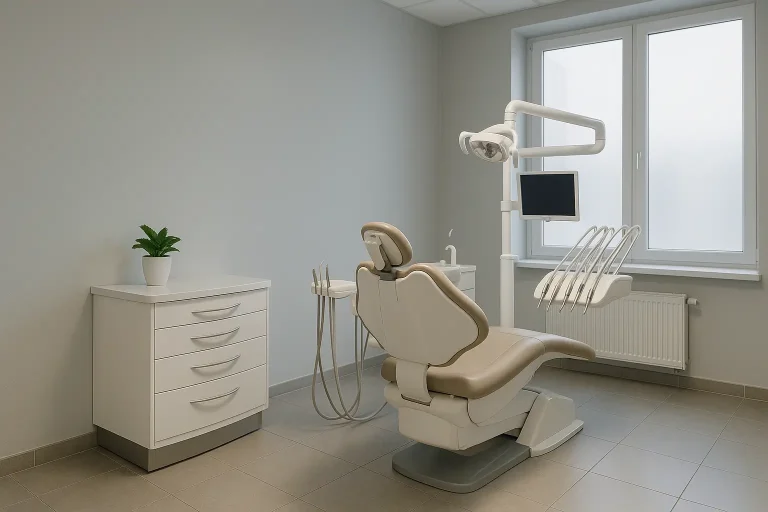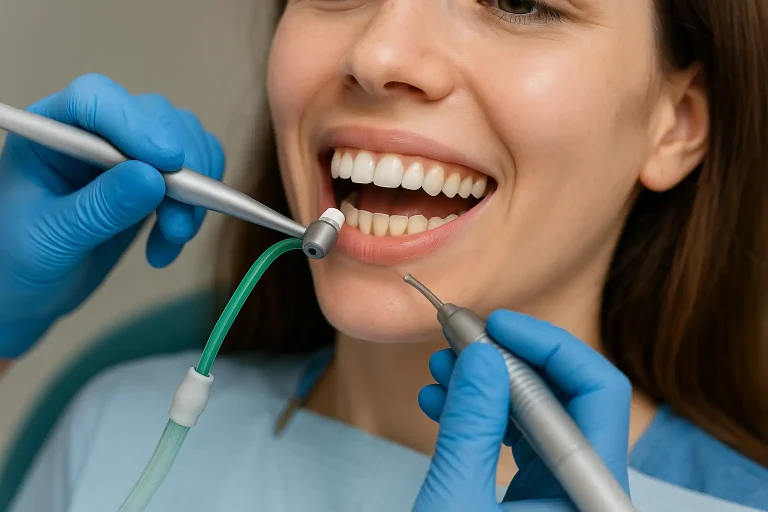Book Appointment Now

Daily Braces Care Tips: Your Modern Guide to a Confident Smile
Introduction
When you begin your journey with braces, you’re not just aligning your teeth—you’re investing in a brand-new smile and long-term oral health. But this journey isn’t limited to regular visits to your orthodontist or patiently waiting for results; it starts every day in front of the bathroom mirror, with a toothbrush in hand.
Daily braces care isn’t a luxury—it’s a necessity. It’s the foundation for treatment success, the shield protecting your teeth from cavities, your gums from inflammation, and your braces from damage.
In this article, we offer you a comprehensive, step-by-step guide to daily braces care. From oral hygiene to safe eating habits, all the way to top tips that will make your braces experience smoother and more effective.
Cleaning Is the First Line of Defense
Oral hygiene is the cornerstone of dental health, and with braces, the need for precision increases. Food debris around wires and brackets creates a breeding ground for bacteria, raising the risk of decay and gum disease. Here’s how to keep things clean:
Brush After Every Meal
Brushing three times a day might suffice without braces—but with them, you need to brush after every meal without exception. Use a soft-bristled toothbrush or one specifically designed for braces, and focus on cleaning around the brackets and wires. Don’t forget the gumline.
Use a Special Orthodontic Brush
This isn’t a marketing gimmick—it’s your ally in reaching tight corners where regular brushes fail. Its small size and fine bristles are perfect for cleaning between brackets and wires without damage.
Flossing and Mouthwash
Brushing alone isn’t enough. Plaque hides between teeth. Use orthodontic floss daily to clean areas your brush can’t reach. Follow up with a fluoride mouthwash to strengthen enamel and protect those hard-to-reach spots.
Salt Water Rinse: A Natural Antibacterial Solution
Looking for a natural option to support oral health? Try rinsing with salt water once a day. It reduces gum inflammation and helps disinfect the mouth—especially useful for minor wounds from bracket friction.
Food: Friend or Foe?
You’ve probably heard the phrase, “You are what you eat.” With braces, what you eat could determine whether your treatment succeeds or stalls. Meals are more than fuel—they can be a source of trouble if you’re not cautious. Here’s what you need to know:
Foods to Avoid Completely
Some foods are a “braces nightmare” and can break wires or detach brackets in one bite:
- Nuts: Hard, small, and prone to getting stuck between teeth and brackets.
- Gum, caramel, sticky sweets: They wrap around wires and cause damage.
- Hard or crusty bread: Like overly toasted toast.
How to Eat Hard Foods Safely
Eating apples or carrots isn’t the problem—it’s how you eat them that matters:
- Cut hard foods into small cubes instead of biting directly.
- Use a fork and knife to reduce direct pressure. Avoid using front teeth.
- Avoid very hot or cold foods immediately after getting braces.
Oral Habits to Quit Immediately
It’s not just food that poses a threat. Seemingly innocent habits can seriously damage your braces:
- Nail biting: A nervous habit, but brutal on your wires.
- Chewing pens or glasses: Uneven pressure may detach brackets.
- Opening packages or chip bags with your teeth: Your teeth aren’t tools!
When Braces Become Uncomfortable
No matter your expectations, no one tells you that braces can be uncomfortable at first. The good news? It’s temporary—and there are simple, quick fixes.
Using Orthodontic Wax for Pain and Friction
In the first days after getting braces or after adjustments, wires may rub against your inner cheeks or lips, causing minor wounds or irritation. The solution? Orthodontic wax.
- Take a small piece of wax.
- Soften it between your fingers.
- Gently place it over the irritating area.
Remember: Wax is single-use and should be replaced after eating or drinking.
When to Contact Your Orthodontist
Some pain is normal, especially in the first week. But if you experience:
- Pain lasting more than 5 days despite using wax and painkillers
- Persistent bleeding or deep ulcers
- Broken wires or loose brackets causing sharp friction
- Swollen or inflamed gums, fever, or unusual mouth odor
Don’t wait. Contact your doctor immediately to prevent complications and ensure smooth progress.
Need consultation or treatment? Explore our dental services or book your appointment now via website, WhatsApp, or phone. (+20)1096363526
Your Orthodontist: More Than Just Adjustments
Your orthodontist visits aren’t just routine—they’re essential to your treatment plan and represent your second line of defense after daily care.
Importance of Regular Checkups
Braces are not a static solution. They’re a dynamic plan that needs regular adjustments:
- Modify pressure levels according to tooth movement.
- Detect broken or loose components.
- Monitor gum and tooth health under constant stress.
Rule of thumb: Don’t skip appointments, even if everything seems fine. Some issues can only be detected by a professional.
Professional Cleaning During Follow-Ups
Despite your best efforts, there are spots you simply can’t reach. Plaque and tartar can sneak in unnoticed. That’s why:
- Teeth are cleaned with professional tools.
- Tartar buildup is removed around brackets and wires.
- Gum health is evaluated for sensitivity or inflammation.
Tip: Good hygiene isn’t just about brushes and floss—it needs support from a trained dental team.
When to Reevaluate Your Treatment Plan
Treatment is not always linear. Sometimes the plan needs adjustments:
- Unexpectedly slow tooth movement
- New issues like overcrowding or unwanted gaps
- TMJ or facial muscle discomfort
- Poor patient compliance with elastics or other devices
This is why transparent communication with your orthodontist matters. A good plan is flexible and adaptive.
Additional Tips for Comprehensive Oral Health
Braces care doesn’t stop at cleaning and avoiding hard foods. Daily behaviors and habits play a huge role in enhancing your experience. Here are some tips:
Everyday Habits to Protect Your Braces
- Don’t play with your braces using your tongue or fingers—it weakens brackets and causes irritation.
- Avoid nail biting or teeth clenching under stress.
- Wear a mouthguard when playing sports to avoid trauma.
Care starts with awareness, and awareness shines through in small habits.
Importance of a Balanced Diet
Braces aren’t just a mechanical treatment—they need a healthy oral environment to work well. Nutrition is key:
- Calcium: Strengthens teeth and bones.
- Vitamin C: Boosts gum health and immunity.
- Water: Keeps the mouth hydrated and reduces bacteria.
Cut down on sugars. Eat more fresh vegetables and light proteins.
Healthy Routine Outside the House
Whether you’re at school, work, or out and about—bring your mini care kit:
- A foldable toothbrush
- Orthodontic floss or interdental brushes
- Orthodontic wax and mouth rinse
- Small mirror and hand sanitizer gel
Don’t wait until you get home—braces care begins in your bag!
FAQs About Daily Braces Care
1. How often should I brush my teeth while wearing braces?
It’s recommended to brush after every meal—or at least 3 times a day—with a soft brush and special floss.
2. Can I use regular mouthwash during braces treatment?
Use fluoride-containing mouthwash to strengthen enamel and reach difficult areas.
3. What should I do if a wire breaks or a bracket loosens?
Contact your orthodontist immediately. Don’t try to fix it yourself. Use wax for temporary relief.
4. Do hot or cold foods affect braces?
Yes, sudden temperature changes may cause sensitivity or weaken brackets. Stick to moderate temperatures.
5. Should I carry cleaning tools when I go out?
Yes! Carry a small kit with a brush, floss, wax, and travel-size rinse to make care easy anywhere.
Conclusion: Your Braces Reflect Your Care
Behind every aligned smile is a story of discipline, commitment, and attention to small details.
Braces aren’t just wires and devices—they’re a temporary lifestyle that leads to a permanent result.
Quick Recap of Key Daily Habits:
- Brush after every meal with a soft brush and orthodontic floss.
- Avoid hard and sticky foods. Cut food into small pieces.
- Use orthodontic wax when needed.
- Never skip follow-up appointments.
- Develop daily habits that protect your braces and support your health with balanced nutrition.
Consistency Is the Secret to Amazing Results
Every minute you spend caring for your braces today is an investment in your future smile. Braces shape your teeth—but your daily routine makes the real difference.
Your Braces… Your Responsibility
Sometimes it feels tiring or boring, especially in the beginning. But believe us—every small step gets you closer to your dream result.
Be positive. Take care of yourself. And remember: behind every confident smile is a conscious decision to care.
Start caring today… and smile with confidence!
Daily care for your braces is an investment in your future smile.
If you face any difficulty or have questions about orthodontic treatment, don’t hesitate to call or message us on WhatsApp.
Dr. Mohamed Fahmy’s Clinic
Address: 25XX+J7G, next to Kaddoura, 74 Gameat El Dowal Street, above Nile Labs, Dokki, Giza Governorate, 12651
For booking and inquiries: 01096363526
WhatsApp: 01096363526

